
MENUMENU
TALK TO AN EXPERT
Special Hours: 7AM – 6PM PST
TALK TO AN EXPERT
Special Hours: 7AM – 6PM PST
A blown fuse can ruin your day before it even starts. Your RV, van, or boat might stop working if you blow a fuse. You might notice lights that stop working, for example. But how can you tell if a fuse is blown and it isn’t some other issue? In this article, we cover everything you need to know about blown fuses in your RV, van, or boat. Let’s dive in.
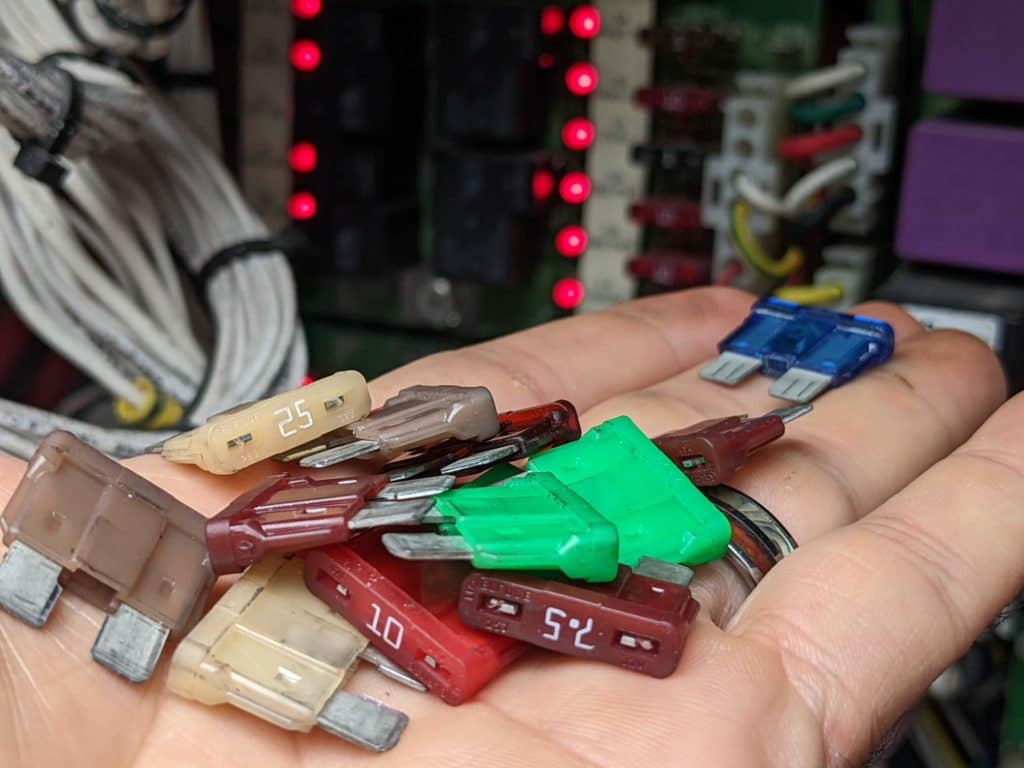
Electrical fuses are extremely important when it comes to electrical safety. They interrupt a faulty flow of electricity and therefore prevent a current overflow that can potentially damage your electrical circuit or start a fire.
Most vehicles, such as trucks, boats, and RVs, have multiple fuses that safeguard a variety of electrical components. They’re usually made of a metal wire that safely melts when a strong current flows through it, prohibiting it from passing through to the electronic itself.
→ Learn more about What Is An Electric Fuse and Why Do They Matter?
There are usually two fuse boxes or more in most vehicles. Where they are located varies widely, however, there is usually one inside the vehicle somewhere and at least one outside usually near the battery or under the hood of the engine.
The interior fuse box helps protect your interior electronics, like the lights, radio, etc. The exterior fuse box protects the engine and drivetrain, such as the cooling system and the engine control unit.
In trailers and fifth-wheel RVs, there is usually only one fuse box for the interior of the unit. Motorhomes may have 4 or more fuse locations.
To find your fuse panel you may need to consult a manual as sometimes they are located in less than obvious locations or even concealed behind hidden doors. It’s a great idea to understand where your fuse panels are before you blow a fuse so you don’t have to hunt it down in frustration when something goes wrong.

It is relatively simple to tell if a fuse is blown. When a fuse blows, you’ll likely notice right away that one of your electrical components has stopped working. This is because there was probably some kind of malfunction that caused a large current of electricity to pass through the wires. As a result, the fuse melted or burned when it reached a certain voltage. This stops the current of electricity and protects the electronics from damage.
Most RVs, cars, and trucks have a diagram of the positions and names of each fuse in the fuse box. You can use this to identify which fuse connects to the electronic that has stopped working and locate the fuse that way. Remember that some vehicles — especially RVs — can have over 30 fuses. Because of this, you’ll need to pay close attention to the diagram and look closely at the fuses themselves, too.
Sometimes fuse panels will even have lights next to the fuses that either illuminate or go out when a fuse is burned. This feature can easily help you identify a fuse problem, but many panels do not have this feature.
If you do not have a diagram or lights sometimes you need to pull the fuses out one by one and inspect them. This is the worst-case scenario, but sometimes it’s the only way. In an extreme case, you may need to consult an electrician who can use a special tone tool that can trace lines and figure out which fuse a wire is connected to.
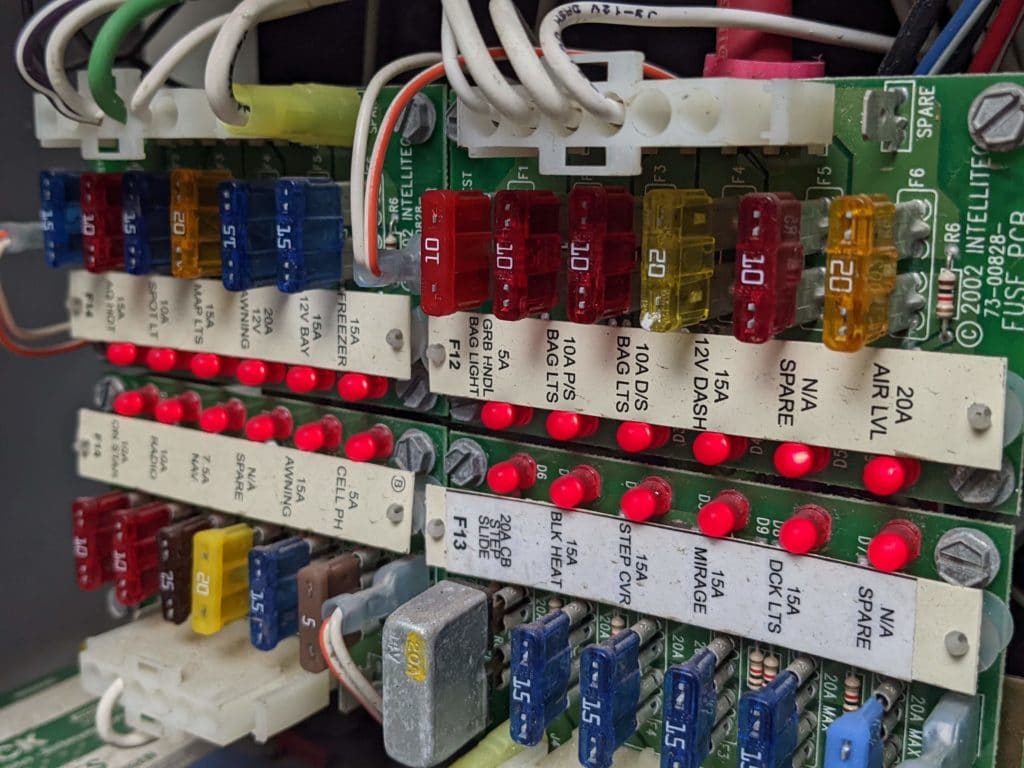
If one of your electronics suddenly stops working, this could signify a blown fuse. Thus, if your radio or cooling system suddenly ceases to do its job, don’t panic. The answer could be as simple as replacing a fuse. So, what if your vehicle doesn’t have a diagram, or it’s just downright impossible to tell which fuse blew? Let’s talk about that.
Many times, you can spot which blown fuse just by looking at the fuses. When you inspect the fuse box, you’ll likely see many colorful translucent squares, tabs, or cartridges. These components house a small wire connected by two metal “prongs.” If you look closely enough, you’ll see a severed wire inside. Sometimes you need to pull the fuse to see if it’s ok, but some are designed to see from the top without removing them.
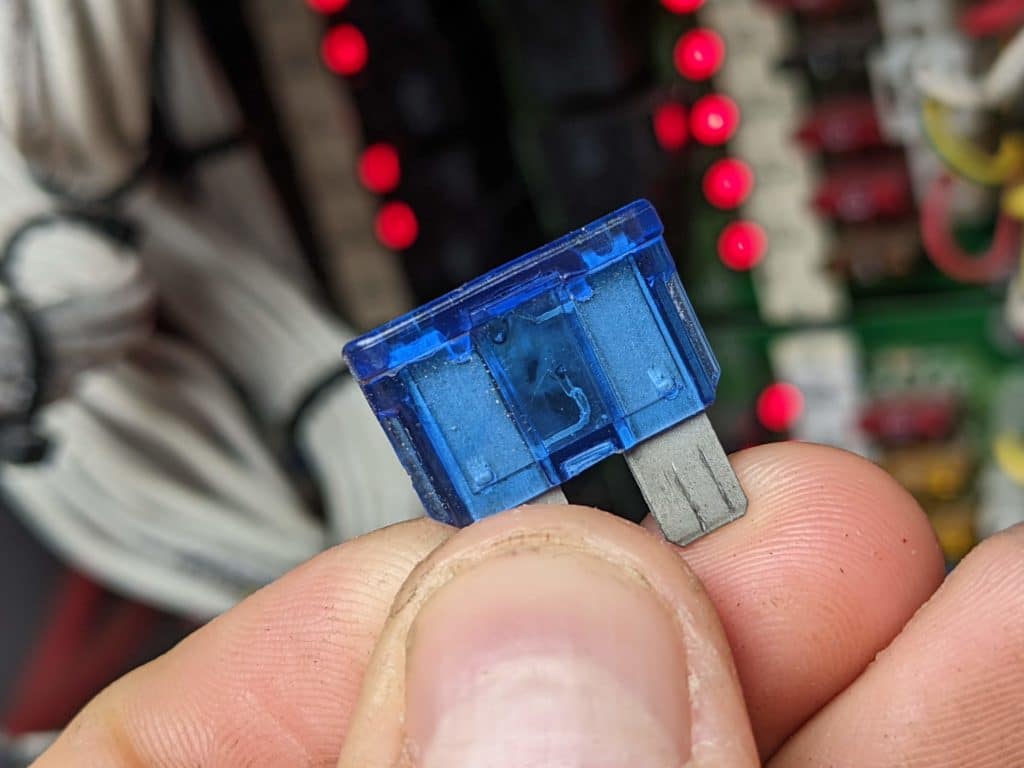
Sometimes a fuse is bad but not necessarily blown. In this case, the best way to test it is with a test light or a multimeter. These are both relatively inexpensive tools and provide an easy way of checking if there’s a current running through the fuse.
A test light is an easy-to-use device that allows you to check if a particular circuit or fuse is active. It usually has a probe you connect to the fuse. If that particular fuse does indeed have a current running through it, the light bulb on the test light will turn on. This is one of the simplest ways to check if a fuse has gone bad, and test lights typically cost around $20 on Amazon.
A multimeter is another great way to test if a fuse blew. It tends to be a more common household item than test lights. To test the fuse with a multimeter, simply pull out the fuse in question, turn on the multimeter (set it to measure continuity), and place one prong on either end of the fuse. If your multimeter doesn’t produce noise or reads “OL,” “Open,” or “Not Complete,” your fuse is bad. Multimeters can range in price from $12 to $250+. It really depends on the features you need.
→ Need a refresher on how to use a digital multimeter?
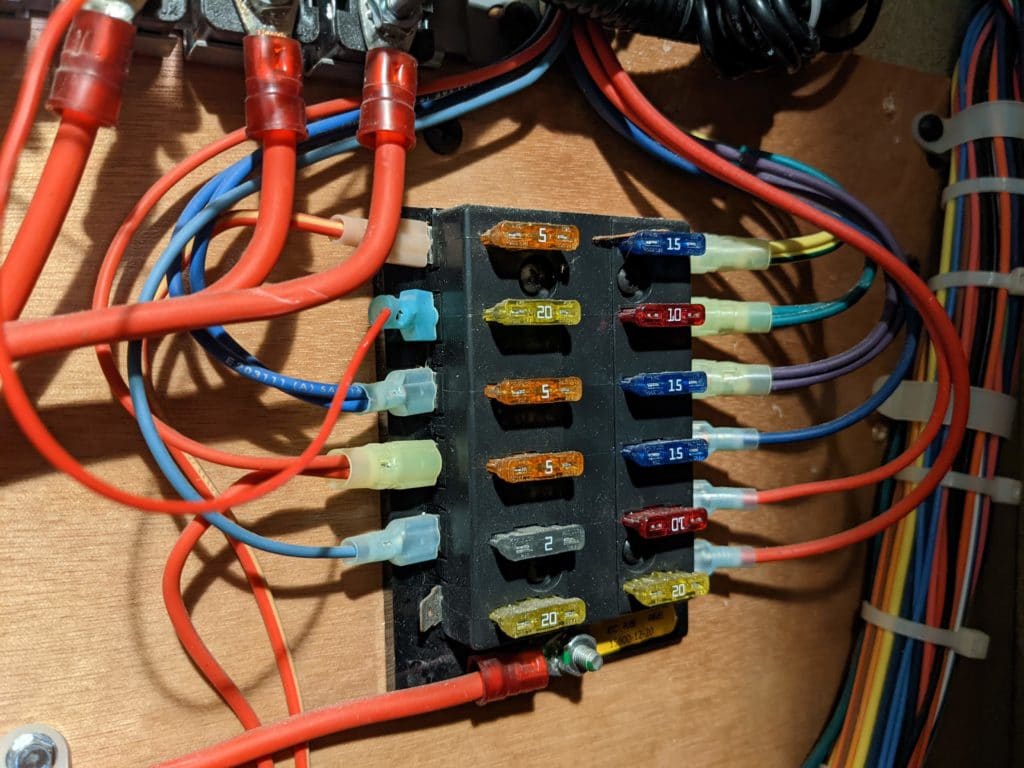
RV and car fuses generally work in the same way. This means you can use the same signs to tell if a fuse is blown, however, the way they differ is where the fuses are located and which electronics they protect.
For example, most RVs and vans have both AC power and DC power (in other words, shore power and battery power). Thus, a circuit breaker protects the AC electronics instead of a fuse box. These are similar to what you would find in a house but a little smaller. For the DC electronics, however, you’ll find a typical fuse box. And, of course, if your RV is a motorhome, you’ll have a typical vehicle fuse box as well.
Fuses for larger RV or van house battery banks are quite a bit different looking than the ones you’ll find in your car. These fuses must have proper ratings and the correct gauge wire to suit the system. But be warned, even if they say they are rated for the load, not all fuses are created equal. Lower quality fuses can cause heat build-up in your fuses. These issues have been directly connected to lower-cost ANL fuse and fuse holders, typically bought from online retailers like Amazon.
When it comes to fuses, it is worth investing in a higher-quality product. We sell three fuse kits in our shop: a 300 A Fuse Kit, 400 A Fuse Kit, and 500 A Fuse Kit. All three of our fuse kits are priced at ~$35.
→ Learn more about the benefits of Investing In Fuses for Your Mobile Power System.
Sometimes, car batteries do not have a main fuse connected to them but rely on the smaller fuses in the fuse panel to protect the battery.
However, main fuses are common on energy storage batteries, like those used in RVs, vans, and houses. These fuses are designed to protect the batteries and wires in case of an overload event. Because the batteries get used much more heavily in these situations, it’s a very good idea to use a main fuse on your battery circuits.
Here at Battle Born, we recommend fusing the batteries to protect both you and your batteries from damage. While our batteries are much safer than old lead-acid styles, they can still provide a lot of current that could be dangerous in some situations. A main fuse is an easy way to add protection to the entire system.
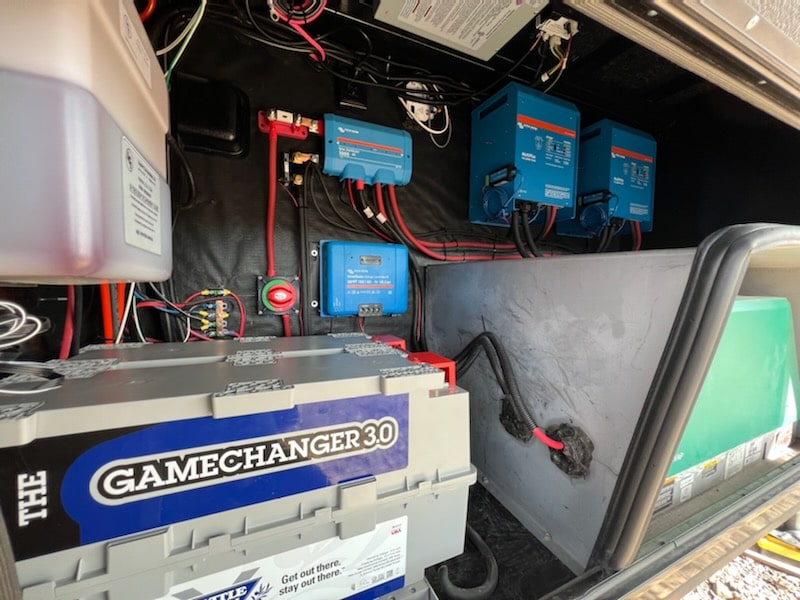
If an electronic in your boat, van, or RV stops working, don’t panic. It doesn’t necessarily mean that your device is faulty. In fact, it doesn’t even mean that your batteries are dead. The problem could be as simple as a blown fuse. Luckily, that means that your fuse box is doing its job, and it’s an easy fix if you know how to tell if a fuse is blown. All you have to do is replace the blown fuse with a working one, and voila, your electronic should operate again!
Do you have any questions about blown fuses? Drop them in the comments below!
We know that building or upgrading an electrical system can be overwhelming, so we’re here to help. Our Reno, Nevada-based sales and customer service team is standing by at (855) 292-2831 to take your questions!
Also, join us on Facebook, Instagram, and YouTube to learn more about how lithium battery systems can power your lifestyle, see how others have built their systems, and gain the confidence to get out there and stay out there.
Shop Best Sellers








Ask a technical specialist now at 855.292.2831
Stay in the Know
One thought on “How to Tell If a Fuse Is Blown in Your RV, Van, or Boat”
Thanks for this helpful post! I was away from my RV last weekend and came back to find my lights not working. Following your steps, I was able to identify that indeed a fuse was blown. I’ll make sure to check them regularly from now on to avoid any future issues. Great resource!